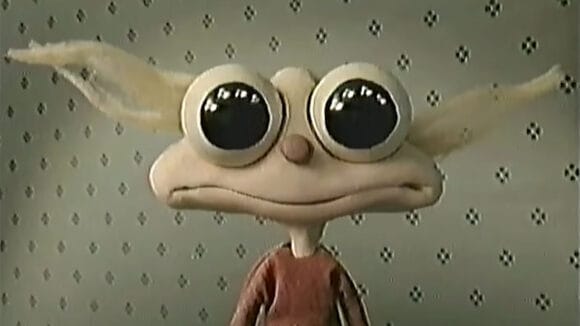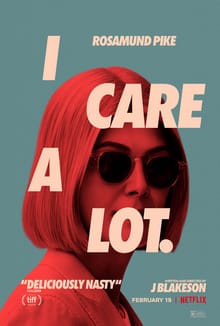OPAL ★★★☆☆
Film Editor Oliver Weir reviews Jack Stauber's new short film 'OPAL', available to watch for free on Youtube and Adult Swim.

OPAL
★★★
- Where: Youtube
- When: Now
- Cost: Free
OPAL is certainly one of the most creative and entertaining shorts I've seen so far this year.
A young girl called Opal lives opposite a frightening house. At night she hears cries and screams; however, one night, she finally plucks up the courage to go and investigate. She finds three people living there: a grandfather, a father, and a mother. Each of them—horrific in their own way—mistakes Opal for a girl called Claire. They vent their frustrations with Claire (and the world at large) through short songs. Opal, unable to utter a single word throughout the entire film, stands in bemusement and terror. Why do they think that they know her?
This is about all that can be said without revealing the surprises and revelations. I strongly recommend you go and watch OPAL (available for free here: https://www.youtube.com/watch?v=-1pVLJl_snc) and then come back to see what the hell you just watched.
*SPOILERS BELOW*
The central theme of OPAL is attention. Each of Claire's relatives neglects her, and each has an associated item that helps them do this: for the grandfather it is cigarettes and TV, for the father it is mirrors, and for the mother it is pills.
Firstly, the grandfather. His retreat from the world is TV. When he's watching TV he's the centre of attention, everything is directed towards him after all—he's the person the singers sing to and the man the salesmen fight over. Why then, he wonders, would he care about Claire? His adulation for TV is nowhere more apparent than in the focal line in his song: "Why does it sound so easy to breath on TV?". Another downside to his dreaming is that he looks at the people on TV and, while enamoured by their lives, does not find the same sense of freedom or apparent happiness in his own life; he coughs up blood, smokes cigarettes all day, and struggles to breath. The disjunction between his ideal and his reality has made him angry and bitter, and he is more than willing to take this out on Claire.
The next character we meet is Claire's father. He is incredibly self-conscious about his appearance and the attention, or lack thereof, that he receives. His self-esteem is exclusively supported by the eyes of others—something that is brilliantly represented when he is shown flying with wings of mirrors after his song ends. By convincing himself that he is the object of the world's attention—through hyper self-consciousness (as opposed to narcissism)—he has neglected his duties to Claire, despite sharing the same wish to be "seen by someone out there".
The final person we meet is Claire's mother. She appears to have withered away due to her addiction to pills, most likely stemming from stress and an unspecified, though debilitating, mental illness. She is dangerously resigned, saying at one point "Goodness exists, if I wait Claire, and I sit still, it will arrive". The way she harms Claire is a bit more subtle than the grandfather or father. The mother appears to have an idea of the ideal life—or, in her words, "Momma needs a little girl to fall in her arms"—and is either disappointed that Claire, as well as her husband and the grandfather, cannot live up to her expectations. Her discontent manifests itself in continual acts of unfounded forgiveness: "You should be more considerate, but I forgive you", "I forgive every one of you every night, it's a virtuous cycle", "they never repent how I want them to". By convincing herself that she is an arbiter, she reclaims some of the power she feels she has lost. Conversely, when she is self-conscious about her power, she is quick to bring Claire down to her level as a self-soothing technique—"You're just as powerless as I am Claire". In this way, Claire is constantly reminded that no matter what she says or does, she will never be enough.
When things get too much for poor Claire she retreats into her own little world where she can be, above all else, noticed. The world she has built in her mind has been forged from an 'Opal's Burgers' billboard that stands across the street from her house; the billboard features a happy family enjoying some burgers. In that world she dreams of receiving only one compliment: 'We see you Opal!'. She dreams of raising a burger high in the sky and dancing on the table, just as the billboard depicts. It is this dream that Opal begins with. From that point on we see her dragged back into her bleak reality. Whenever she tries to be more than Claire—to be an Opal—her grandfather demands the feebler, more accepting Claire to return, whilst her mother demeans her efforts to be more than her circumstance "You've been a person today, huh?". For Claire, there seems to be no escape. In the meantime, what else can she do, other than scream in the face of her situation by staring longingly at that billboard, pretending, just for a minute, that her troubles are miles away...






